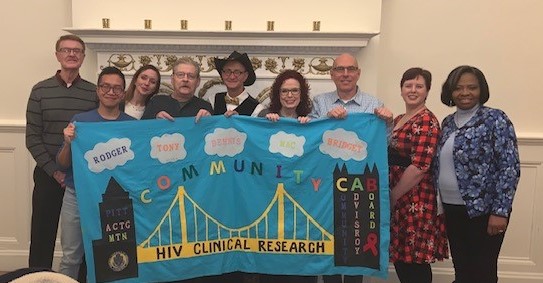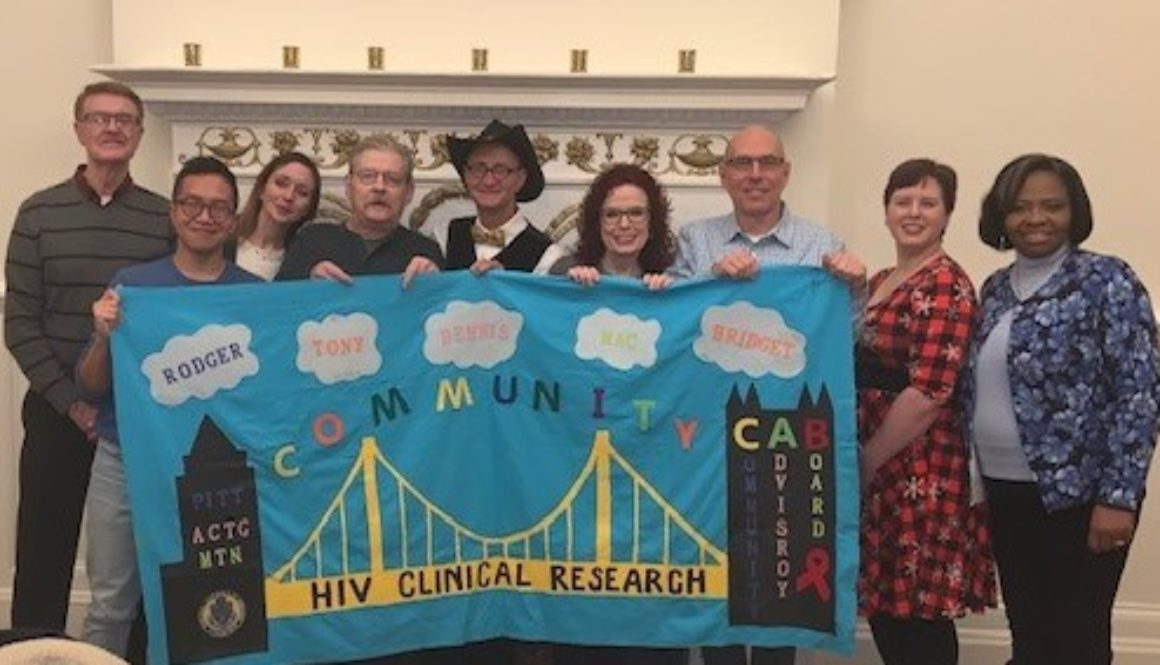Pitt CRS

What is your name and where are you from?
We are the Community Advisory Board (CAB) of the Pitt Treatment Evaluation Unit. Based in Pittsburgh, PA, the mission of the CAB is to promote community participation, improve participant care, and provide a role for affected community members to advocate for safety, relevance, and ethical consideration regarding clinical HIV/AIDS research.
When were you involved with the ACTG?
This varies. Some of us have been involved since the CAB’s founding in 2000. Our ranks come and go due to displacement, illness or death. For most of us, the common denominator is that we’ve have been living with the virus and have participated as patients of the Pitt Treatment Evaluation Unit. Others have been involved in various prevention studies, or serve as clinical investigators or recruiters. In any case, our collective knowledge of the disease is harnessed to make impactful decisions on studies under a distinct community lens.
Describe your community.
We represent the intersection of multiple communities involved in HIV/AIDS research and activism. While many of us would identify with and/or closely with the LGBQTIA+ community, we are also young, old, people of color, married, single, longtime survivors, people with disabilities, children of immigrants, transplants to Pittsburgh, allies. We have witnessed our friends, families, and chosen families succumb to the disease. We are proud and angry and sometimes a little too tired to be either. We welcome and respect everyone who joins our motley crew.
Why are you involved in HIV/AIDS activism?
All of us share a passion for this type of work. Personally and professionally, we are involved in HIV/AIDS volunteer efforts and expressly interested in giving back to the communities that support us. Moreover, as former patients and participants, we are proud to share our unique perspective on how clinical trials operate and their effects (e.g., marketing, implementation, recruitment, compensation) on the community at large.
What are the most important treatment issues for your community?
Our role in reviewing clinical research and staying abreast of related issues is closely tied to how we promote treatment and maintain a high quality of life. We want those who have been infected (longtime and new) to stay healthy. We want an abundance of good, affordable treatment options. We want education and awareness of HIV/AIDS to combat the past, present and ongoing stigma that plagues the communities we live in and beyond. We want to evangelize that undetectable equals untransmittable, and that treatment can function as one of the most potent forms of prevention.
How do you want your work in the ACTG to be remembered?
We’d like to be remembered for serving as a vital cog in the reduction of suffering, any burden that those living with/in fear of HIV/AIDS go through every day. We look forward to the day that we have a functional cure for the disease. Until then, we are resolute in our position to aid these efforts by supporting treatment options and reducing rates of transmission. We also sincerely hope that our voices emphasize how clinical trials must be accessible and implemented equitably, that those historically underrepresented in this space are able to receive treatment and care without stigma.
What are your future hopes for the ACTG and HIV research?
We hope that ACTG remains at the forefront of understanding and leveraging the immune system to develop a real cure for HIV/AIDS. Ideally, we hope to no longer exist once the virus is successfully obviated, with resources allocated to other pressing areas of research.
